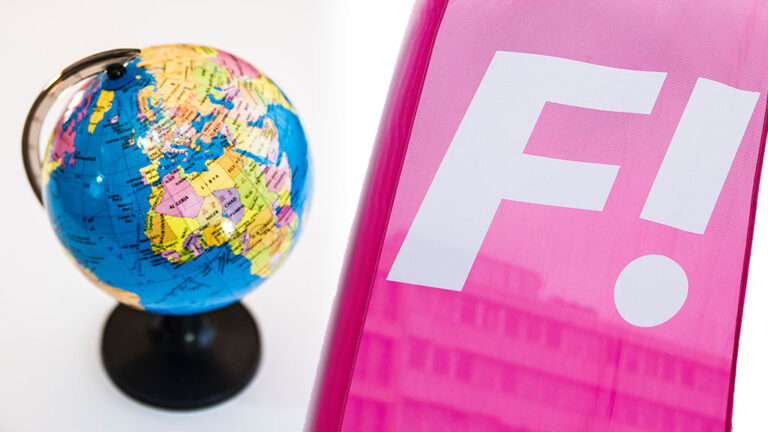Sweden's policy for international cooperation is in turmoil. On the one hand, the goal of a percentage of the country's GNI going to development aid is being questioned, and on the other hand, the development assistance budget is being eroded through redistributions - right now to efforts against the corona pandemic. Feminist initiatives are strongly critical of this.
In times of pandemic, our values of solidarity, compassion and respect for human rights are tested. High-income countries must continue to invest in international solidarity and even increase the levels of aid in their respective budgets. It would be irresponsible to allow proposals like the Moderates recently launched about reducing development assistance because the money is needed in Swedish welfare.
Sweden's 'development aid policy' emerged during the 1960s and Swedish aid has since 1975/76 been closer to one percent of the country's gross national income (GNI), except for a dip in the late 1990s and early 2000s. It is an internationally high level and Sweden has had great credibility and a great reputation in development cooperation. The overall goal has been solidarity with people in poverty and reducing the gap between rich and poor. In 2013, the goal was supplemented by the fact that development assistance would also be aimed at people living in oppression. Humanitarian motives were strengthened and also the struggle for universal rights such as democracy, human rights and gender equality. "Assistance on the recipient's terms" has been a guiding principle.
Uses assistance for refugee reception
But since a few years ago, the government has set aside a large part of the aid pot for costs for refugee reception in Sweden, through so-called settlements. Feminist initiatives are strongly critical of this and want to return to at least the one percent goal - without settlements.
We think it is deeply immoral to set national expenditure on the reception of refugees against international solidarity. The fact that it is permissible to count such expenditure as aid - according to guidelines from the OECD's Development Committee DAC - is a neo-colonial focus of cooperation between global North and South. Sweden should not follow that.
Sweden should instead manage the praise we have received from the OECD for the Swedish development cooperation reaching the people who need it most and for Sweden's peace and conflict work to be noticed. In addition, we are described as a leader in shaping the global development agenda - including the financing of multilateral organizations and humanitarian efforts. But these praises are tarnished when the UN at the same time, rightly, has criticized Sweden for violating human rights - both when we tightened refugee policy and when we export weapons to countries in armed conflict.
The aid has great symbolic value
In terms of money, public development assistance in Sweden is small compared with trade and corporate investments in other countries. But it has a great symbolic value. It is important as leverage and counterforce in a globalized market economy. In Sweden, the Sweden Democrats and the Moderates have proposed a sharp reduction in development assistance. It is tragic and is based on nationalist thinking. National needs are set against international solidarity, where private capital can never replace assistance from the public budget.
The UN has appealed for extra funds to combat the spread of the coronavirus in some of the world's most difficult humanitarian crises in South Sudan, Yemen, Afghanistan and Syria. Sida reallocates SEK 100 million from the humanitarian reserve to operations against covid-19 in particularly vulnerable countries. More money is needed and the government is now redistributing another 380 million. Sida is tasked with reviewing whether more money that today cannot be used in ordinary development assistance can be used in the pandemic crisis. It is justified but on the other hand a holistic view is needed in the analysis.
Feminist policies are needed
It is up to the recipient countries to decide what the priorities are and the local civil society organizations must be involved from the outset. Sweden cannot continue to pursue its aid policy on the one hand and be an arms-exporting country on the other.
In the wake of the corona crisis, for example, violence in close relationships is also increasing, which shows that a feminist policy is needed behind the financial resources. When will we see Swedish companies take social responsibility in low-income countries where they operate? Many companies are absent in terms of working environment, wages and environmental issues in production, but present in terms of tax evasion. Why do the Moderates say nothing about this? We have no hope for the Sweden Democrats. Their nationalist view of the issue leaves no room for solidarity efforts in low-income countries.
Feminist initiative wants to pursue a policy of international solidarity free from the exploitation of vulnerable people not only in Sweden but also in the rest of the world. Sweden's policy for international cooperation is a measure of where the dividing lines go between the parties. Solidarity is the way forward.


